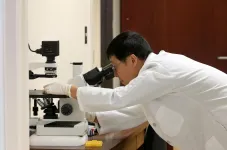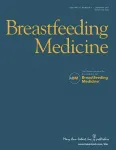(Press-News.org) The needs of millions of overlooked, 'left behind' adolescent women must become a more significant priority within international efforts to end poverty by 2030, a UK Government-commissioned report is urging.
The University of Cambridge report, which was commissioned by the Foreign, Commonwealth and Development Office, argues that there is an urgent need to do more to support marginalised, adolescent women in low and middle-income countries; many of whom leave education early and then face an ongoing struggle to build secure livelihoods.
Amid extensive evidence which highlights the difficulties these women face, it estimates that almost a third of adolescent women in many such countries are not in education, training, or work.
'Adolescents' (technically people aged 10 to 19) comprise about one sixth of the world's population. Women in this age group are some of the most vulnerable people in the world. The report argues that unless more is done to support them, it is unlikely that the UN's 2030 Sustainable Development Goals - which include ending poverty, ensuring inclusive education, and empowering women and girls - will be met.
In particular, the document highlights the need for more concerted efforts to be made to prevent gender discrimination in labour markets, strengthen social safety nets for women, and provide both formal education and continued training for the huge numbers of adolescent women who, it says, 'have missed out on acquiring relevant skills to enhance their livelihood opportunities.'
Professor Pauline Rose, Director of the Research for Equitable Access and Learning (REAL) Centre at the Faculty of Education, University of Cambridge, said: "Marginalised adolescent girls are those who experience extreme poverty, live in rural areas, have disabilities, are affected by conflict, or belong to disadvantaged groups. We need to prioritise these young women both in education and as they transition into work. Millions are being left behind by a range of interlocking problems, and strong, sustained political leadership is needed to turn that around."
The Government has identified girls' education as a key focus of the UK's presidency of the G7 group of industrial countries this year, and gender equality will be mainstreamed across the different ministerial tracks. The new report raises gender inequality - both in education and employment - as major areas of concern for the international community.
The report further stresses that adolescence is a make-or-break time for many girls in low- and lower-middle-income countries and should therefore be a focal point of international efforts. During this period, many young women leave education early, either to work, or because they are expected to marry and start a family. Often, they do so without having acquired basic literacy or numeracy. In addition, very few have the transferable skills or training that they need to succeed in the world of work.
The document draws on more than 150 sources to evidence both the scale of the problem and the nature of the barriers that marginalised adolescent girls face. For many, a quality education remains a far-off dream. In sub-Saharan Africa, for example, fewer than one in 10 girls from poor households in rural areas complete lower secondary education.
Many also struggle to find secure employment. Data from 30 low- and middle-income countries suggests that 31% of young women are not in education, employment or training, compared with 16% of boys. Those who do find jobs frequently work for low wages, in unsafe settings and without any sort of social safety net.
One of the main reasons for this, the report says, is a lack of access to appropriate skills development and training. For example, one in three unemployed adolescent girls in the Asia-Pacific region, and one in five in sub-Saharan Africa, report that the entry requirements for their preferred career path exceed their education and training.
Compounding these problems, gender discrimination in both labour markets and wider society is an accepted norm in many countries. Among many other examples, this manifests itself in inheritance laws which transfer land and property to sons but not daughters; the tendency to force girls who struggle to find work into early marriage and childbearing; and widespread gender-related violence. One study in Nigeria, cited in the report, found that two-thirds of young female apprentices had experienced physical violence - and 39% said that their employer was the most recent perpetrator.
While the research also identifies many successful individual programmes around the world that address some of these issues, it stresses the need for policy-makers internationally to prioritise adolescent girls in larger-scale, systemic reforms.
It makes numerous recommendations about how that can be done, including:
Implementing measures and laws that challenge gender discrimination in education, labour markets and wider society.
Curriculum reforms to develop women's transferrable skills in school, supported by skills development programmes outside the education system.
Catch-up programmes for those who have missed out on a basic education.
Strengthening social safety nets, which have been shown to benefit women in particular.
Providing sexual and reproductive health services and information for all adolescent girls.
Providing counselling and rehabilitation services that offer practical support to adolescent girls who have been forced into unsafe work settings.
The report highlights the particular role that female political leaders and parliamentarians can play in driving forward a more integrated agenda for marginalised young women, and in challenging patriarchal norms that hold back gender equality.
It also warns that many of the trends documented are currently at risk of becoming worse as a result of COVID-19. "The best way that Governments can signal their commitment to this problem is by putting women and girls at the forefront of COVID-19 recovery efforts and ambitions to build back better," Rose said. "It is vital that this includes a strong focus on adolescent girls."
INFORMATION:
One third (35%) of people who took a new drug for treating obesity lost more than one-fifth (greater than or equal to 20%) of their total body weight, according to a major global study involving UCL researchers.
The findings from the large-scale international trial, published today in the New England Journal for Medicine, are being hailed as a "gamechanger" for improving the health of people with obesity and could play a major part in helping the UK to reduce the impact of diseases, such as COVID-19.
The drug, semaglutide, works by hijacking the body's own appetite regulating system in the brain leading to reduced hunger and calorie intake.
Rachel Batterham, Professor of Obesity, Diabetes and Endocrinology ...
MUSC Hollings Cancer Center researchers found that a single strain of bacteria may be able to reduce the severity of graft-versus-host disease (GVHD), as reported online in February 2021 in JCI Insight.
Bone marrow transplant can be a lifesaving procedure for patients with blood cancers. However, GVHD is a potentially fatal side effect of transplantation, and it has limited treatment options. This proof-of-concept study demonstrates that better treatment options may be on the horizon for patients with GVHD.
Xue-Zhong Yu, M.D., associate director of Basic Science at Hollings Cancer Center, and lead ...
Researchers at the University of Maryland School of Medicine (UMSOM) and their colleagues published a new analysis today in the journal Nature from genetic sequencing data of more than 53,000 individuals, primarily from minority populations. The early analysis, part of a large-scale program funded by the National Heart, Lung, and Blood Institute, examines one of the largest and most diverse data sets of high-quality whole genome sequencing, which makes up a person's DNA. It provides new genetic insights into heart, lung, blood and sleep disorders and how these conditions impact people with diverse racial and ...
A team, including an astronomer from the University of Hawai?i Institute for Astronomy (IfA), have confirmed a planetoid that is almost four times farther from the Sun than Pluto, making it the most distant object ever observed in our solar system. The planetoid, nicknamed "Farfarout," was first detected in 2018, and the team has now collected enough observations to pin down the orbit. The Minor Planet Center has now given it the official designation of 2018 AG37.
Farfarout's name distinguished it from the previous record holder "Farout," found by the same team of astronomers in 2018. The team includes UH Mānoa's David Tholen, Scott S. Sheppard of ...
The United States spends more than $200 billion every year in efforts to treat and manage mental health. The onset of the coronavirus pandemic has only deepened the chasm for those experiencing symptoms of depression or anxiety. This breach has also widened, affecting more people.
New research from Carnegie Mellon University, University of Pittsburgh and University of California, San Diego found that 61% of surveyed university students were at risk of clinical depression, a value twice the rate prior to the pandemic. This rise in depression came alongside dramatic shifts in lifestyle habits.
The study documents dramatic changes in physical activity, sleep and time use at the onset ...
UNIVERSITY PARK, Pa. -- The descriptions on the fronts of infant and toddler food packages may not accurately reflect the actual ingredient amounts, according to new research. The team found that vegetables in the U.S. Department of Agriculture's "dark green" category were very likely to appear in the product name, but their average order in the ingredient list was close to fourth. In contrast, juice and juice concentrates that came earlier on the ingredient list were less likely to appear in product names.
"Early experiences with food can mold children's preferences and contribute to building healthful, or unhealthful, eating habits that last a lifetime," said author Alyssa Bakke, staff sensory scientist, Penn State. "Our previous work found combining ...
New Rochelle, NY, February 10, 2021--It may be safe for COVID-infected mothers to maintain contact with their babies. Keeping them apart can cause maternal distress and have a negative effect on exclusive breastfeeding later in infancy, according to The COVID Mothers Study published in the peer-reviewed journal Breastfeeding Medicine. Click here to read the article now.
In this worldwide study, infants who did not directly breastfeed, experience skin-to-skin care, or who did not room-in within arms' reach of their mothers were less likely to be exclusively breastfed in the first 3 months of life. Nearly 60% of ...
Oil and water may not mix, but adding the right nanoparticles to the recipe can convert these two immiscible fluids into an exotic gel with uses ranging from batteries to water filters to tint-changing smart windows. A new approach to creating this unusual class of soft materials could carry them out of the laboratory and into the marketplace.
Scientists at the National Institute of Standards and Technology (NIST) and the University of Delaware have found what appears to be a better way to create these gels, which have been an area of intense research focus for more than a decade. ...
SAN ANTONIO -- Humans possess a formidable multi-layered defense system that protects us against viral infections. Better understanding of these defenses and the tricks that viruses use to evade them could open novel avenues for treating viral infections and possibly other diseases.
For example, a human protein called SAMHD1 impedes replication of the human immunodeficiency virus (HIV) and other viruses by depleting deoxynucleotides -- building blocks needed for the replication of the viral genome. It has long remained a mystery whether and how this protein is activated in response to infection.
Now researchers from The University of Texas Health Science Center at San Antonio (UT Health San Antonio) have discovered that SAMHD1 recognizes a unique molecular ...
Sawfish have disappeared from half of the world's coastal waters and the distinctive shark-like rays face complete extinction due to overfishing, according to END ...



